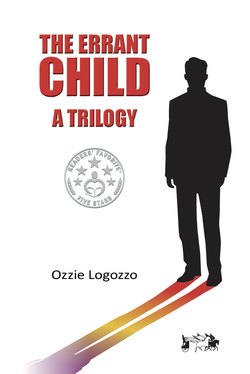Читать книгу The Errant Child - Ozzie Logozzo - Страница 17
На сайте Литреса книга снята с продажи.
Chapter 10
ОглавлениеRome, central Italy Vatican Square
There are no sirens. Blue and white strobe lights wigwag defining a hazardous area in front of the public washrooms. Police beacons lose their mystic appeal under the cloudless sky. Officers and paramedics move about unimpeded. The engagement looks rehearsed and mundane.
Strollers, unflustered, change course. They have no interestinseeingsome type of police exercise orsecurity build up for the approaching celebrations. The neighboring shops with their variety of religious paraphernalia are more captivating.
Preventing access to the public washrooms, several carabinieri are huddled in talk. These policemen look stylish wearing garb designed by
the Italian fashion house of Valentino. They wear, short-sleeved shirts blue with black and red-striped trousers. A white diagonal band accessory across the chest indicates the officers placed on duty. Those dismounting motorcycles wear knee-length boots. Everyone’s caps bear the symbol used by numerous military constabularies: an exploding grenade. The carabinieri have been waiting for their comandante to arrive. Undoubtedly, the comandante’s morning cappuccino al fresco, traditionally consumed only before 11a.m., is the delaying culprit.
Finally, the commander’s signature vehicle wheels in. The doors of a red Lamborghini, Italy’s unrivaled luxury and super sports car, unhinge like the wings of an eagle in flight. The chief has consistently maintained that the police need velocity to catch speeding criminals. The passenger, a detective, surfaces first. He is fat and round, speckled and perfectly groomed. The driver, a lieutenant colonel in charge of the precinct encompassing the Vatican, ascends from the low riser. This young commander presents a striking balance of order, safety, sporty comfort and authority. Service awards and decorations accent his slim cut black jacket. He is confident and conspicuously cocky.
Several carabinieri step aside as the detective and the lieutenant colonel make their way into the public washrooms. Medics are standing idle in the men’s washroom. They are waiting for the police photographer, who is feverishly snapping pictures from every possible angle, to finish.
Inside, one man is prone near the paper towel dispenser. The back of his skull is missing.
A splatter of blood decorates the wall like a canvas of modern, incomprehensible art. Another man lifelessly sits sideways against the underside of a sink.
An apathetic, seemingly bored medic theorizes, “The bullet entered his temple, exploding an entire third of his skull. Sprinkled scraps on the floor are remnants of his brains.”
The detective, Alfredo, is queasy. Giacomo, the lieutenant colonel clenches his teeth. Both men retreat and enter the women’s washroom expecting even worse. They are not disappointed.
Alfredo vomits on his silk tie and Armani suit. Two crouching women have bullet holes on the top of their heads. Two small girls have gunshots in their torsos. A baby, on the floor in front of one of the women, lies riddled with gunshots enough to have severed the head and one of his hands.
Giacomo recognizes the trademark and the message. He recognizes the families. He hungers for fresh air, leaves and immediately lights a cigarette.
Alfredo has not quite regained his composure. Jumbled, he seeks order.
“Giacomo, in God’s name, why do that to a
child?”
The commander is pensive and deeply
disturbed.
“Decapitation is a comparatively honorable form of execution. In Roman times, Cicero was beheaded for challenging the Republic. His hands were also cut off. It beats crucifixion.”
A patrolman, looking peeved, approaches the lieutenant colonel with a salute.
“Comandante, there are three other bodies in the stalls. Two are young women in their early twenties. They appear to be visiting students. Both were carrying knapsacks. In addition, there is one man. He looks to be between thirty and thirty-five. He has a shoulder bag and a camera case.”
Giacomo thanks the officer who then retreats.
Moving on to his colleague, he charges Alfredo with specific tasks.
“Dump the two students and traveler elsewhere. Make it believable. Arrange matters with our newspaper friends. Moreover, transport the family back to their kin in Gioiosa Marina, Calabria. Seal the area. This is not a scene for public consumption.”
As Alfredo prepares to leave, he asks Giacomo, “I know this kind of brutality is like a dog pissing to mark his territory but, Jesus Christ, this is the Vatican. What’s the message? Why the Vatican?”“I don’t know exactly but I suspect the Stregheria is messaging the Mafia. These emissaries were coming to see Cardinal Pio, the professore’s brother-in-law. He might know. I don’t know the specifics. What I do know damn well is that we have
a declaration of war. God help us all.” Giacomo mutters to himself.
“For my part, God will abandon me.” Alfredo, confused and alarmed, wobbles
away.
Giacomo heads toward the Swiss Guard gate.
He must communicate these events to his uncle, Cardinal Pio. Then, he must escape the country.
